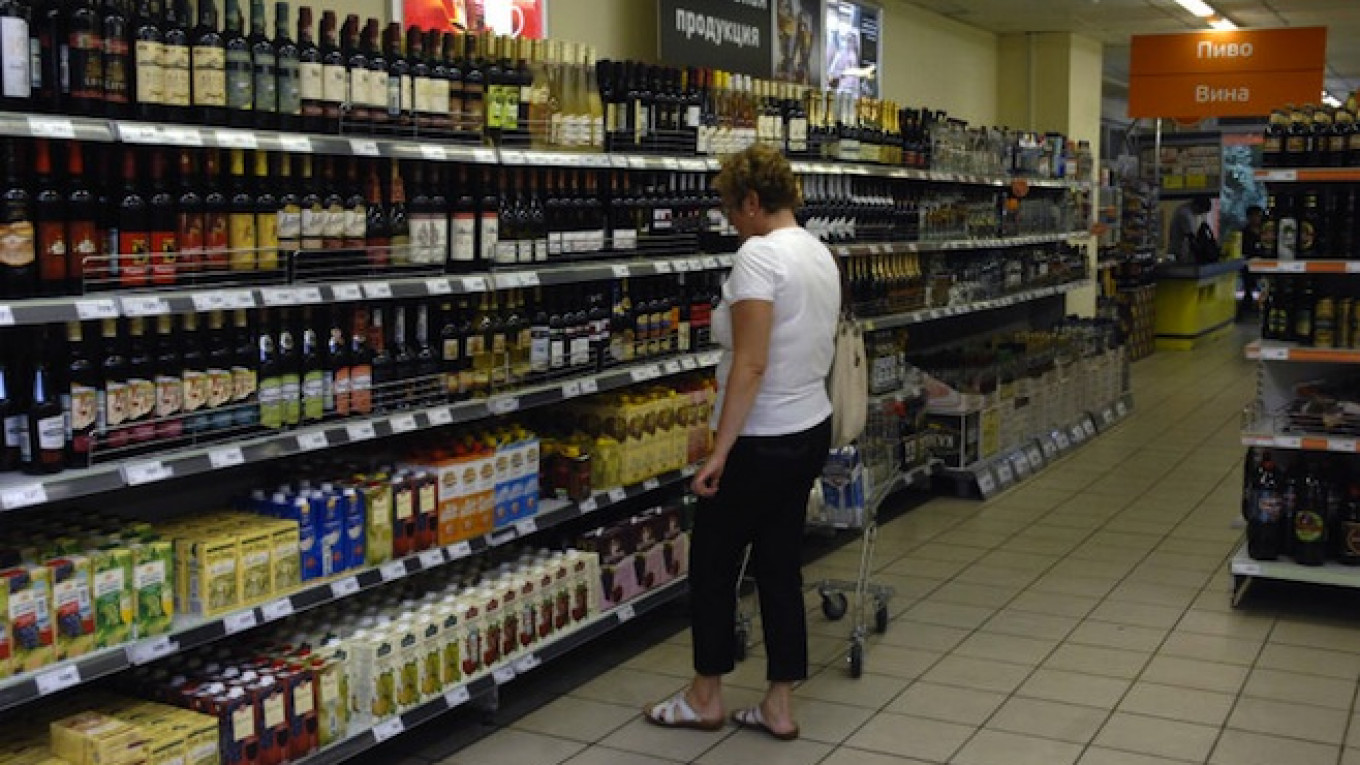Russia's third-largest food retailer said Monday that it was imposing a one-month price freeze on key food products in an apparent bid to retain customers amid accelerating inflation.
Days after official figures showed year-on-year inflation in January rising to 15 percent, Dixy Group said in a statement it would not change prices for staple foodstuffs, including buckwheat, rice, pasta, sunflower oil, flour, frozen fish and pelmeni, a form of Russian dumpling.
“We are taking the inflationary risks on ourselves,” said Dixy Group head Ilya Yakubson, according to the statement. “This is the company's answer to the expectations of our customers and confirmation of the fact that, in the current situation, it is retail chains that are a break on inflation.”
Consumer prices have risen rapidly in recent months amid a sharp fall in the value of the ruble and a food import ban imposed in retaliation for Western sanctions on Moscow.
Food price increases have outpaced overall inflation. Russian prosecutors said last month that the cost of basic foodstuffs in some areas had jumped by up to 150 percent. Retailers, including Dixy, were criticized for unjustified price rises.
“It's a marketing move to retain customers,” consumer market analyst Elizaveta Lebedeva at Moscow brokerage Aton said by telephone.
Other food retailers would be unlikely to follow suit because they do not need to compete with Dixy or because it would be too costly, she added.
Government officials have said that Russia could impose price freezes on “socially important” foodstuffs if inflation climbs above 30 percent in a month.
Dixy Group is 54 percent owned by Mercury Group, an investment vehicle controlled by billionaire retailers Igor Kesayev and Sergei Katsiyev.
A Message from The Moscow Times:
Dear readers,
We are facing unprecedented challenges. Russia's Prosecutor General's Office has designated The Moscow Times as an "undesirable" organization, criminalizing our work and putting our staff at risk of prosecution. This follows our earlier unjust labeling as a "foreign agent."
These actions are direct attempts to silence independent journalism in Russia. The authorities claim our work "discredits the decisions of the Russian leadership." We see things differently: we strive to provide accurate, unbiased reporting on Russia.
We, the journalists of The Moscow Times, refuse to be silenced. But to continue our work, we need your help.
Your support, no matter how small, makes a world of difference. If you can, please support us monthly starting from just $2. It's quick to set up, and every contribution makes a significant impact.
By supporting The Moscow Times, you're defending open, independent journalism in the face of repression. Thank you for standing with us.
Remind me later.






